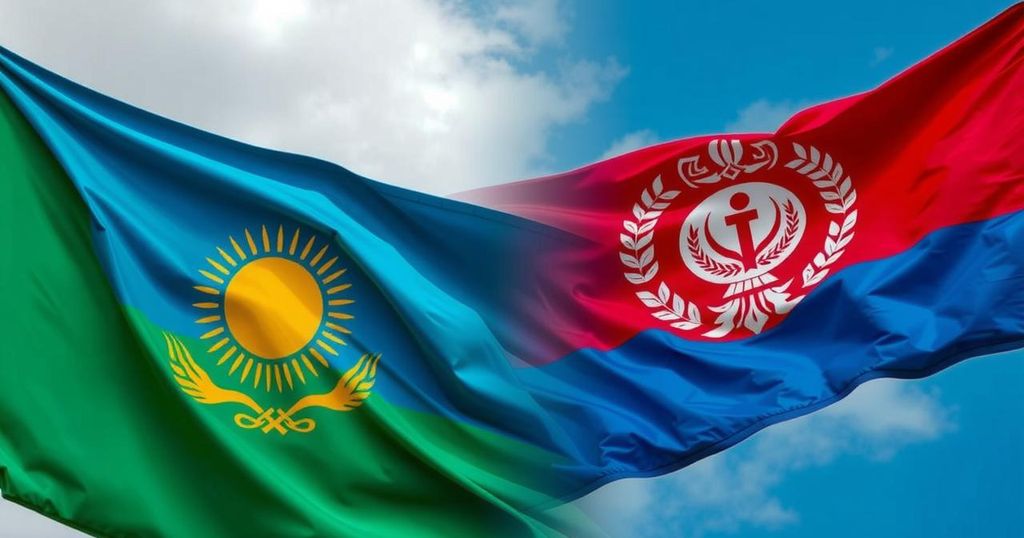Kazakhstan and Uzbekistan Assert Sovereignty by Rejecting Russian Alliances
Kazakhstan and Uzbekistan have recently resisted Russian influence by rejecting membership in BRICS and the Eurasian Economic Union (EEU). Kazakhstan chose to retain its observer status in BRICS, while Uzbekistan decided to stay an observer in the EEU, reflecting their desire for sovereignty amid geopolitical tensions following Russia’s actions in Ukraine. Both countries are navigating their complex relationships with Russia and the West, indicating an assertive stance in their foreign policy.
Kazakhstan and Uzbekistan have recently demonstrated their independence from Russian influence, as they declined to join two key multilateral organizations aligned with Moscow’s interests. Kazakhstan decided not to pursue full membership in BRICS following the latest summit, opting to maintain only its observer status. In contrast, Uzbekistan rejected the opportunity to become part of the Eurasian Economic Union (EEU), a trade bloc that represents a foundational aspect of Russia’s geopolitical influence in the region. Both nations are strategically positioned between the West and Russia, seeking to navigate the complexities of international relations, particularly following Russia’s invasion of Ukraine. Despite their closeness to Russia, their decisions reflect a desire to preserve sovereignty and reduce reliance on Moscow amid growing global tensions. Kazakhstan’s recent statements underscore its preference for collaboration through the United Nations rather than relying on regional associations such as BRICS or the EEU. As President Qasym-Zhomart Toqaev’s spokesman expressed, “Kazakhstan will not be applying for membership in the foreseeable future.” Meanwhile, Uzbekistan has exhibited caution in its relations with Russia, as indicated by parliamentary remarks emphasizing limited benefits from EEU participation. As noted by one political analyst, “the EEU has become much less attractive” due to emerging geopolitical challenges, including sanctions imposed on Russia. Overall, the actions of Kazakhstan and Uzbekistan signal a nuanced balancing act in their foreign policy, as they seek to assert their autonomy while managing their ties with both Russia and Western powers.
The geopolitical landscape in Central Asia has shifted significantly since Russia’s invasion of Ukraine, with Kazakhstan and Uzbekistan actively reassessing their foreign relations. While historically close to Moscow, both countries are now striving to maintain autonomy and mitigate the repercussions of their affiliation with Russia amidst international sanctions and increasing isolation of Russia on the global stage. Their recent decisions regarding BRICS and the EEU demonstrate a notable move towards greater independence from Russian-led initiatives, highlighting the delicate balancing act they are attempting to perform between engaging with Russia and establishing stronger ties with Western nations.
The recent decisions by Kazakhstan and Uzbekistan to not join BRICS and the EEU respectively highlight a significant shift in Central Asia’s geopolitical dynamics. These moves reflect both countries’ efforts to assert their sovereignty and navigate a complex international landscape, balancing their relationships with Russia and the West. As they seek to distance themselves from potential repercussions associated with aligning too closely with Moscow, their diplomatic choices will likely influence regional stability and global alliances moving forward.
Original Source: www.rferl.org




Post Comment